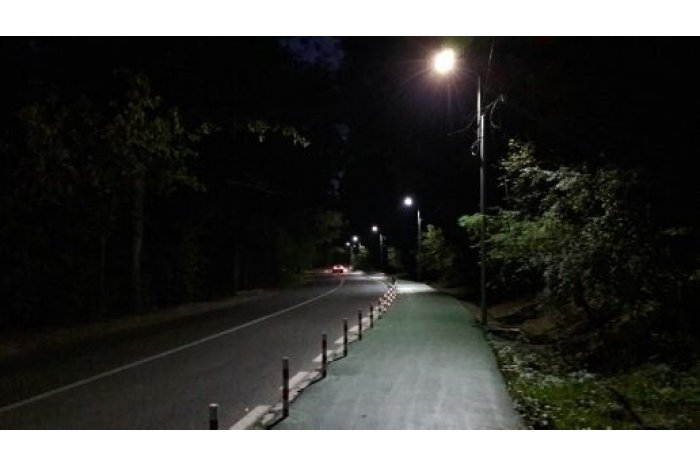Calarasi town of central Moldova has modern illumination due to European Union's project
20:42 | 19.11.2021 Category: Regional
Chisinau, 19 November /MOLDPRES/ - About 17,000 residents of the central Moldova Calarasi town benefit from a modern system of street illumination, guided online, due to a project backed by the European Union. The event on the official launch of the street public illumination took place today, in the context of the EU Climate Diplomacy Week and EU Sustainable Energy Week 2021.
The length of the street illumination network is 25 km and ensures the saving of energy, as well as cutting the maintenance and exploitation costs. The Calarasi town has become brighter also after the architectural illumination of the building of the History and Ethnography Museum from the settlement and 20 sidewalks were illuminated according to the European standards in the energy sector. All energy efficiency measures were possible due to the support provided by the European Union.
„I am glad to see that, in Calarasi, just as in many other regions where European Union’s projects are implemented, the direct beneficiaries are people whose quality of life is improved. At the same time, we, the European Union, are confident that, through energy efficiency projects, we can contribute to a sounder planet in future. The European Union will continue backing such projects, which bring tangible results of improving the people’s living, as we are stronger together,’’ European Union’s Ambassador to Moldova Jānis Mažeiks said.
The energy efficiency measures within the illumination system from the Calarasi town are part of the project, Optimization of the public illumination in the Calarasi town – Glow Worm in the Heart of Forests. The project, implemented by the Calarasi mayoralty, in partnership with the Viitorul (Future) Institute, is financed by the European Union through the EU programme, Covenant of Mayors – Demonstration Projects, and is co-financed by the Calarasi town mayoralty and the Agency for Energy Efficiency.
The project’s overall cost is of 680,750 euros, of which 544,600 euros is a grant provided by the European Union and 136,150 euros is the national and local contribution.

